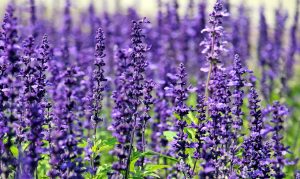Sleep Apnea
 Sleep apnea is a serious condition that interferes with breathing while you sleep. It can cause a person to gasp for breath or stop breathing for up to several minutes. This is because of the collapse of soft tissue in the throat, which reduces the airway for breathing. There are several treatment options available for sleep apnea, including lifestyle changes, weight loss and quitting smoking. Treatment can help the patient feel better and get a better night’s sleep.
Sleep apnea is a serious condition that interferes with breathing while you sleep. It can cause a person to gasp for breath or stop breathing for up to several minutes. This is because of the collapse of soft tissue in the throat, which reduces the airway for breathing. There are several treatment options available for sleep apnea, including lifestyle changes, weight loss and quitting smoking. Treatment can help the patient feel better and get a better night’s sleep.
Symptoms of sleep apnea include daytime sleepiness, loud snoring, and restless sleep. While obstructive sleep apnea affects the lower airway, central sleep apnea is caused by a malfunction in the brain’s signaling system. The lapses in breathing can negatively affect the body’s oxygen supply, and can cause serious health problems.
Essential Oils
Essential oils have been shown to relieve the symptoms of sleep apnea and improve breathing while you sleep. However, it’s best to consult with your health care provider before using essential oils. Many of them have not been evaluated by the FDA. Therefore, they may not be effective for everyone. However, if used as prescribed, essential oils can be helpful in alleviating the symptoms of sleep apnea. One of them is lavender essential oil. It can be applied to the chest or neck or placed in a diffuser. Lavender is widely used for aromatherapy and has many benefits for the body, including alleviating snoring. Moreover, lavender helps people with sleep apnea relax and sleep better. In addition, thyme oil is also effective in relieving symptoms of sleep apnea and is commonly used in home remedies for respiratory conditions. It is also great for clearing airways. It may also relax the cerebral cortex. Other useful oils for use in helping with sleep and snoring include tea tree, peppermint and eucalyptus. Menthol crystals are also very useful for improving the airways by clearing congestion. These can all be combined (a few drops of each) in a bowl of boiling water to diffuse the smell throughout the bedroom.
Essential oils are beneficial for sleep. Many of them have relaxing and rejuvenating properties that can help the lungs recover. Many of these oils can also help people deal with stress and anxiety. However, they should not be used as a sole treatment for sleep apnea. Instead, they should be used in conjunction with prescribed therapy. If you suspect you have sleep apnea, it is always better to consult with a healthcare professional.
Essential oils are helpful tools for sleep apnea sufferers. Peppermint, lemon, thyme, and lavender are known to reduce symptoms of sleep apnea. These oils have strong healing and anti-bacterial properties. When used in combination with carrier oils, these essential oils can reduce the symptoms of sleep apnea. These oils are safe to use and can even be mixed together in a dark glass bottle. Adding them to a diffuser will help them reach their full effects.
Eucalyptus oil is also beneficial for sleep apnea. It contains anti-inflammatory properties that can help reduce snoring and other symptoms of sleep apnea. You can diffuse eucalyptus oil in the bedroom using a diffuser. Adding a few drops to a warm bath before bed can help you get a good night’s sleep.
Lavender is an essential oil that has been used for centuries for treating sleep disorders, including sleep apnea. The essential oil has a calming effect on the mind, and can improve the sleep environment. Applying it to the chest or pillow can help. Alternatively, you can diffuse lavender essential oil throughout your bedroom. It will reduce stress levels. It can also soothe your apnea.
For mild cases of sleep apnea, eucalyptus oil can help clear up airway congestion. The anti-inflammatory properties of eucalyptus oil can help to clear up mucus. You can dab a few drops under each nostril. Steam inhalation is also beneficial. Also, Roman chamomile essential oil can help promote sound sleep. Roman chamomile is good for the central nervous system, and can help to reduce snoring.